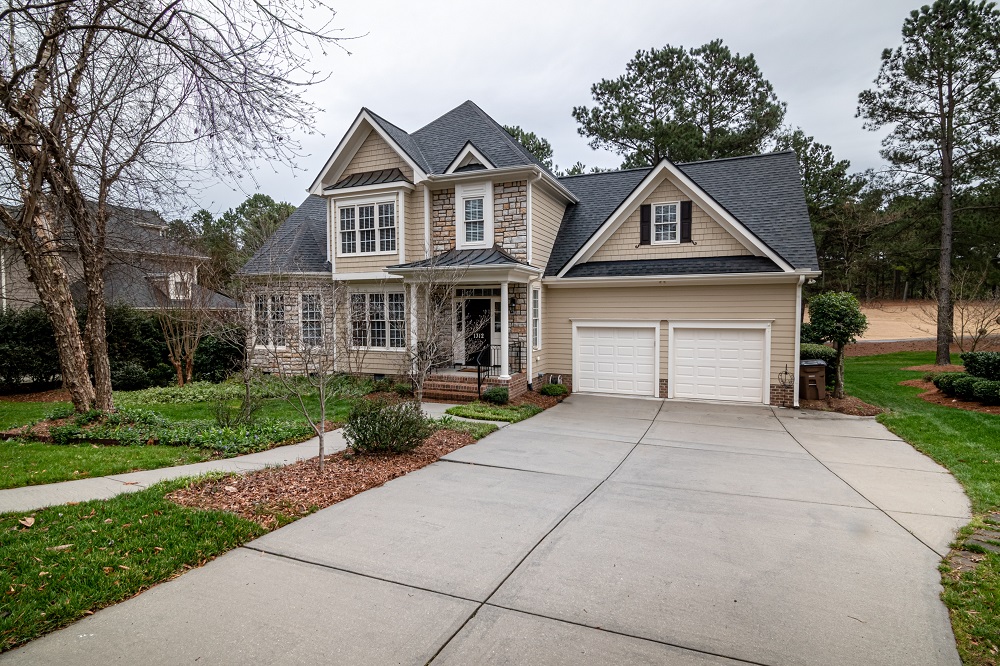
Finding your dream home and land is an exciting journey, but it can also feel overwhelming. This "insider's guide" cuts through the noise, offering practical steps and insider knowledge to help you navigate the process successfully:
**Phase 1: Defining Your Vision (The Foundation)**
1. **Go Beyond "I Want a Bigger Kitchen":**
* **Lifestyle First:** How will you live in this space? Think about daily routines, hobbies, family needs (now and in 5-10 years), entertaining habits, and work-from-home requirements.
* **Must-Haves (Non-Negotiables):** List the absolute essentials (e.g., number of bedrooms/bathrooms, minimum square footage, garage, specific location features like proximity to schools or parks, type of land - flat, sloped, acreage).
* **Nice-to-Haves (Desirables):** List things you'd love but could potentially compromise on (e.g., specific architectural style, hardwood floors, updated appliances, large backyard, fireplace, specific view).
* **Deal-Breakers:** Be honest about what you absolutely *cannot* tolerate (e.g., busy street noise, certain neighborhood types, older roof, HOA restrictions).
2. **The Land Connection:**
* **Why Land Matters:** Are you looking for a specific lot size? Privacy? Room to garden, build out, or keep animals? A specific setting (rural, suburban, urban edge)?
* **Zoning and Regulations (INSIDER TIP!):** This is CRUCIAL. Before falling in love with a piece of land, verify its zoning allows for the type of home you want to build or the use you intend (e.g., single-family, multi-family, agricultural, short-term rentals). Check for overlays like flood zones, environmental restrictions, or historic districts. Research subdivision rules if applicable. Your agent or a local planner can help.
* **Utilities and Access:** Confirm access to roads, electricity, water, sewer/septic, and internet. The cost and feasibility of bringing utilities in can be a major factor, especially for rural land.
**Phase 2: Researching Locations (Where Dreams Take Root)**
3. **Explore Beyond the House:**
* **Neighborhood Vibe:** Drive through different areas at different times (day, evening, weekend). Walk around if possible. Talk to people who live there. Does it feel safe, friendly, and aligned with your lifestyle?
* **Schools:** Even if you don't have kids, good schools often indicate a desirable neighborhood and can impact resale value. Check school district boundaries and ratings.
* **Amenities & Commute:** Consider proximity to work, grocery stores, healthcare, restaurants, parks, public transport, and recreational facilities. Factor in realistic commute times.
* **Future Development:** Look for signs of planned growth or potential negative impacts (e.g., new highways, industrial zones). Check city/county master plans.
4. **Budget Realistically (House + Land + Everything Else):**
* **Total Cost:** Your budget isn't just the purchase price. Factor in:
* Down payment
* Closing costs (various fees)
* Moving expenses
* Immediate repairs or renovations
* Landscaping
* Furniture/decor
* Potential HOA fees
* **For Land + Build:** Construction costs, permits, site preparation.
* **Get Pre-Approved:** This is an INSIDER MUST-DO. A mortgage pre-approval from a lender gives you a clear understanding of how much you can borrow and makes you a more serious buyer in the eyes of sellers.
**Phase 3: The Search & Discovery Process**
5. **Find the Right Real Estate Agent (Your Insider Ally):**
* **Specialization:** Look for an agent experienced specifically in the type of property you seek (e.g., new construction, land, luxury homes, fixer-uppers) and familiar with your target locations.
* **Communication Style:** Choose someone you trust and feel comfortable communicating openly with.
* **Technology Savvy:** They should use tools effectively to find off-market deals or specific land parcels.
* **Interview Candidates:** Don't just pick the first one. Ask about their process, market knowledge, and how they'll represent *your* interests.
6. **Leverage Technology & Traditional Methods:**
* **Online Search Engines:** Use sites like Zillow, Realtor.com, LandWatch, LoopNet (for commercial/development land) to get a broad view. Set up saved searches.
* **Agent's Database:** Your agent has access to MLS listings you won't find online and can filter them precisely to your criteria.
* **Driving Tours:** Nothing beats seeing a neighborhood or area of land in person. Explore suggested areas and even "drive-by" listings that catch your eye.
* **Aerial Views (INSIDER TIP):** Use Google Earth or similar tools to get a bird's-eye view of land parcels, checking shape, topography, proximity to roads/features, and potential buildable areas.
7. **Don't Just Look at Pictures:**
* **Visit In Person:** Always view properties in person. Pay attention to details photos might miss: condition, curb appeal, noise levels, overall maintenance of the neighborhood.
* **For Land:** Walk the entire boundary if possible. Note terrain, trees, drainage, potential views, and any obvious issues (erosion, debris). Take photos and notes.
**Phase 4: Making an Offer & Due Diligence**
8. **Understand the Market:**
* Is it a buyer's market (lots of inventory, less competition)? Or a seller's market (low inventory, high demand, multiple offers)?
* Look at comparable sales (comps) in the area to ensure your offer is reasonable. Your agent will help with this.
9. **Craft Your Offer:**
* **Price:** Base it on comps and your budget, considering the market dynamics.
* **Contingencies:** These are protections for you. Essential ones include:
* **Home Inspection Contingency:** Allows you to back out or negotiate repairs based on the inspection report (INSIDER TIP: Hire a qualified, local inspector).
* **Appraisal Contingency:** Ensures the property appraises for at least the purchase price (protects your loan amount).
* **Financing Contingency:** Gives you time to secure a mortgage.
* **Sale of Your Current Home Contingency (if applicable):** Be aware this can make your offer less attractive to sellers.
* **Land Survey Contingency (for land):** Crucial to verify boundaries and encroachments.
* **Environmental Contingency (if concerns arise):** For land or older homes.
* **Earnest Money Deposit:** Shows good faith. Amount varies by location.
10. **The Due Diligence Period (Your Safety Net):**
* This is your opportunity to investigate further before finalizing the deal.
* **For Homes:** Get the home inspection, review HOA documents (if applicable), check property taxes, verify permits for any recent work.
* **For Land:** Conduct a survey, check for environmental hazards (e.g., soil tests if building), verify utility access and capacity, confirm zoning compliance, research flood zones and insurance requirements.
**Phase 5: Closing the Deal**
11. **Final Walkthrough (For Homes):** Do a final inspection before closing to ensure the property condition matches the agreement and any required repairs have been made.
12. **Review Closing Documents:** Read everything carefully before signing. Your attorney (if used) or a trusted advisor should review complex documents.
13. **Secure Your Dream:** Once closed, get insurance, update your address, and start planning your move and future in your dream home and land!
Finding your dream property is a marathon, not a sprint. Stay patient, do your homework, trust your instincts, and don't hesitate to lean on your professional team (agent, lender, inspector, attorney) every step of the way. Good luck!
